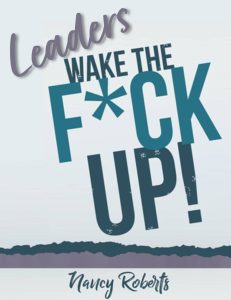A few years into my consulting business, I had a client say to me…
“Nancy, every time you tell me how a candidate is going to act on the job, within a week or two I see the EXACT behaviors you described. I swear, it’s like you have a crystal ball.”
And The DISC Wizard was born!
Nowadays, more than 50% of my business is helping clients with hiring and selection decisions. That’s because most companies recognize the enormous cost of making poor hiring decisions.
And while many experts talk about the high cost of “turnover,” I don’t think that even compares to the higher (and more insidious) cost of what I call “stay-over.” And it all starts with hiring!
For some of you, it’s been a long time since your last interview and even longer since your last first date but you will be amazed at how similar those two experiences really are!
 Here are three ways interviewing is like dating:
Here are three ways interviewing is like dating:
1. Most employers go into a first interview hoping it will be a match. Call it optimism – or the triumph of hope over experience – but we do tend to give people the benefit of the doubt in these situations. This isn’t necessarily a bad thing.
But let’s face it. We all want the next one to be “THE” one. Most people dislike interviewing and plan on only doing it until they fill the position. So some of us have the tendency to see what we want to see and possibly ignore the warning signs. When a candidate (hmmm, notice the similarity?) looks good on paper, compliments us, and says a few things we want to hear, we sometimes stop scrutinizing and trust our first impression.
Big mistake!
Most people can present themselves well in the short timeframe of an hour. But how are they after a few hours, under pressure, or answering tough not typical questions?
2. Desperation is always obvious and always a repellant.
I don’t care how badly someone needs a job, you should never, ever see them sweat (metaphorically speaking).
Have you ever wondered why single women are attracted to married men (and vice versa)? It’s not because they have some crazy desire to break up a marriage and steal someone’s man. It’s because happily married people are content. They have confidence. They aren’t looking and that right there makes them attractive.
It’s the same logic as to why companies are more interested in applicants who are still working. If a candidate is currently employed, the company takes that as a sign that somebody wants them! And maybe you should, too.
3. Badmouthing former employers is always a no-no…even if it’s true!
No matter how funny we think our stories about our exes are or how true they may be, no potential employer wants to hear it. We can’t help but think, “If her last boss was really a psycho, how come she stayed there for five years?” And “Will I be the next one she’s complaining about?”
When a candidate does share some less than positive aspects of their former employer, look for them to tell you what they learned about themselves in the process. You don’t want them to play the victim but to take some responsibility for the situation even if it’s just, “It was my choice to stay when I knew it wasn’t going anywhere.”
~The DISC Wizard
P.S. Are you new to The DISC Wizard? If so, and you have a candidate you’d be interested in assessing prior to hire, contact us and we will give you access to one complimentary pre-employment assessment. Hiring doesn’t have to be a guessing game. This offer expires: 2/28/18





